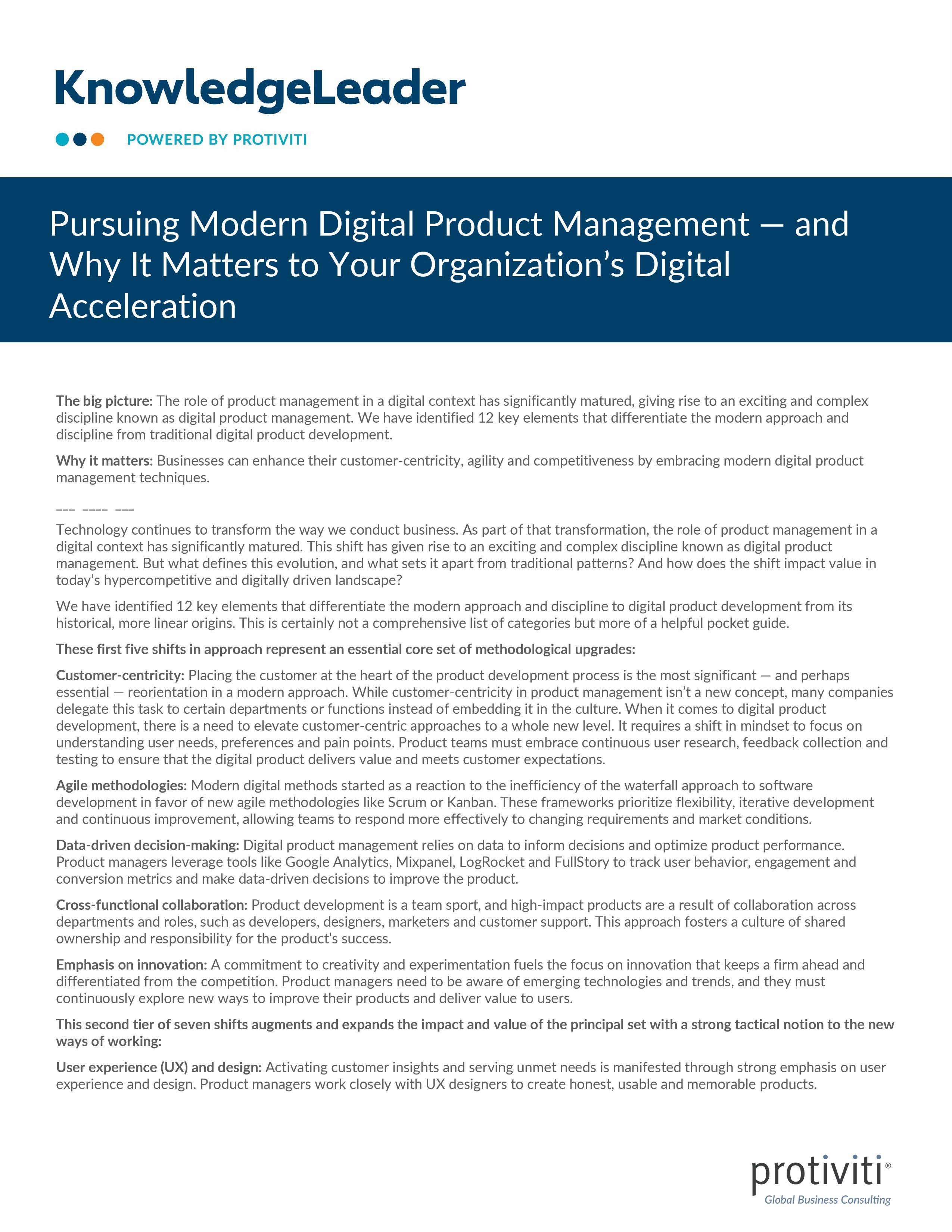Pursuing Modern Digital Product Management — and Why It Matters to Your Organization’s Digital Acceleration

An Essential Core Set of Methodological Upgrades
Learn how your business can enhance its customer-centricity, agility and competitiveness by embracing modern digital product management techniques. This article outlines the evolution of product management in a digital context. It identifies 12 key elements that distinguish contemporary digital product management from traditional approaches. Central to this evolution is the need for a customer-centric mindset, where understanding user needs and preferences becomes paramount. Agile methodologies like Scrum and Kanban are highlighted as essential for fostering flexibility and iterative development, enabling teams to adapt to changing market conditions. Data-driven decision-making is crucial, with product managers leveraging analytics tools to inform strategies and optimize performance.
Collaboration across cross-functional teams is also emphasized, promoting shared ownership of product success. Through this article, you will also learn more about the significance of innovation, user experience design, rapid prototyping, and minimum viable products (MVPs) in validating ideas and reducing risks. Continuous delivery and deployment practices are recommended to ensure consistent value release, while scalability, security and integration with other digital tools are deemed vital for long-term success. Metrics and key performance indicators (KPIs) are essential for measuring product effectiveness. Ultimately, embracing these modern digital product management practices is positioned as a transformative journey that leads to improved customer satisfaction and better business outcomes, making it imperative for organizations aiming for digital acceleration.